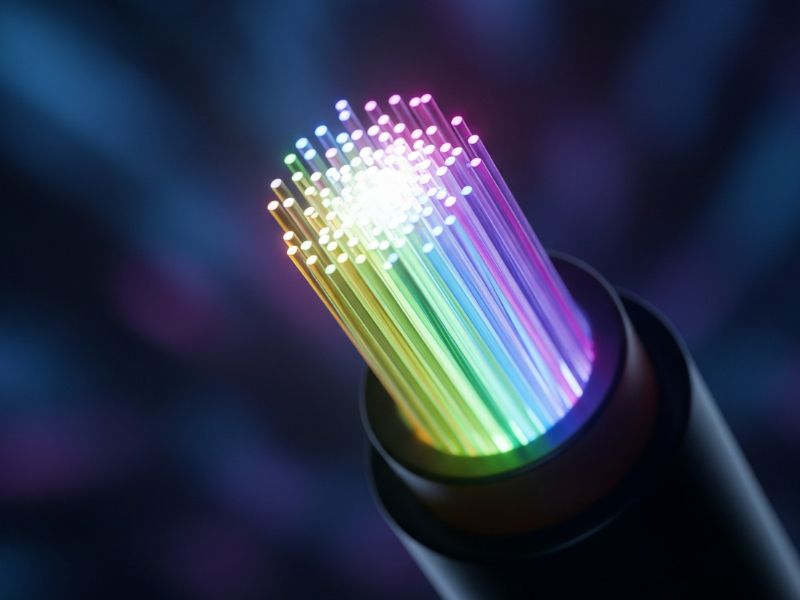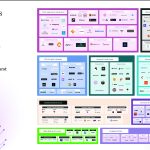
What’s the difference between a fibre optic and a copper internet connection?
A fibre optic connection allows the transfer of data at higher throughput over much longer distances than copper wire. There are many advantages of fibre optic cables compared to copper ones. The primary benefit of using fibre optic cables is that they can send signals significantly faster than copper cables can. If you examine a local area using a modern copper line, it can carry up to 3,000 telephone calls simultaneously. In contrast, a similar system using fibre optics can carry over 31,000.
Traditional copper wires transmit electrical currents, while fibre-optic technology delivers pulses of light generated by a laser along optical fibres. This means that fibre optic transmissions can travel a great deal further and much faster than copper cables in a significantly shorter amount of time. Light can also strengthen signals as they travel from point A to point B, which isn’t always the case with electrical pulses sent through copper cables. Copper cables carry significantly weakened electrical pulses to their destination compared to fibre optic cables. Due to the speed capabilities of fibre optic cable, it is not accurate to say that copper cables are the right option for future-proofing internet connections. Fibre optic cables are a forward-thinking decision that prepares your home for new and more advanced networks.
Let’s get into the detail:
- Fibre Optic Cable has greater bandwidth than copper. BeFibre, for example, has a performance speed of up to 2.3 Gbps. When we look beyond current speeds, laboratories have been able to produce speeds of over 50 Gbps, highlighting the future capacity of fibre optic cable. Additionally, it is essential to consider that fibre speeds are only dependent on the type of cable used. Single-mode fibre optic cable offers far greater distance than either 62.5 μm or 50 μm multimode cables.
- Fibre-optic cables offer more secure communication because they are highly resistant to tapping, radio frequency interference, and jamming.
- Fibre optic experience has low attenuation and very little data loss, even over long distances, because light travels through the fibre without experiencing attenuation or loss of intensity over time.
- Fibre optic cable also provides reliable data transmission. It is entirely immune to many environmental factors, unlike the copper alternative. The fibre optic core is made of glass, which is an insulator, meaning no electric current can flow through it. Fibre is also less susceptible to temperature fluctuation than copper and can be submerged in water. This reliability ensures that your networking infrastructure is secure and can withstand various environmental conditions, giving you confidence in your data transmission.
- Another advantage of fibre optic cables is that they don’t have electrical interference, as they don’t interact with or pick up environmental noise. This makes them valuable in locations where high voltage or lightning is often present. Additionally, optical cables don’t require electricity and, therefore, don’t pose a fire hazard.
Copper cable
- Out of all the different metals and cables available, copper is the best conductor. It’s possible to obtain more power from a piece of copper than from other metals.
- Copper cable is a soft metal, and despite its durability, it can be shaped to meet various needs. Copper wiring’s flexibility makes it suitable for homes and other buildings.
- If you use copper internet connections in your home, you are less likely to require future repairs than other metals. But there is no benefit over fibre optic cable.
Some tech stores carry copper cables in a variety of sizes, which can translate to lower cable costs. This cost-effectiveness makes copper cables a prudent choice for those who want to build a reliable networking infrastructure at a lower cost.
The bottom line is that when you choose to use fibre optic cables over copper cables, you will receive data at much quicker speeds. So, if that’s important to you, fibre is right for those who value speed when it comes to connecting to the internet.
To find out more about how to get fibre optic cable in your area, visit the BeFibre website.












